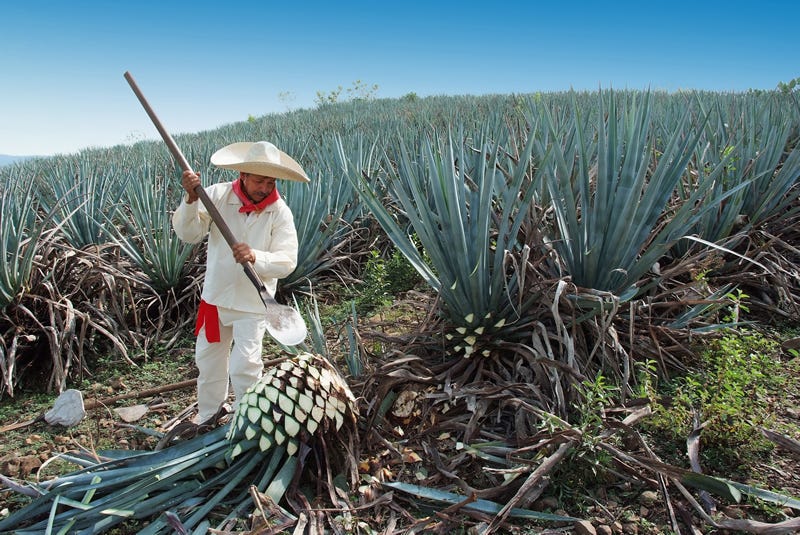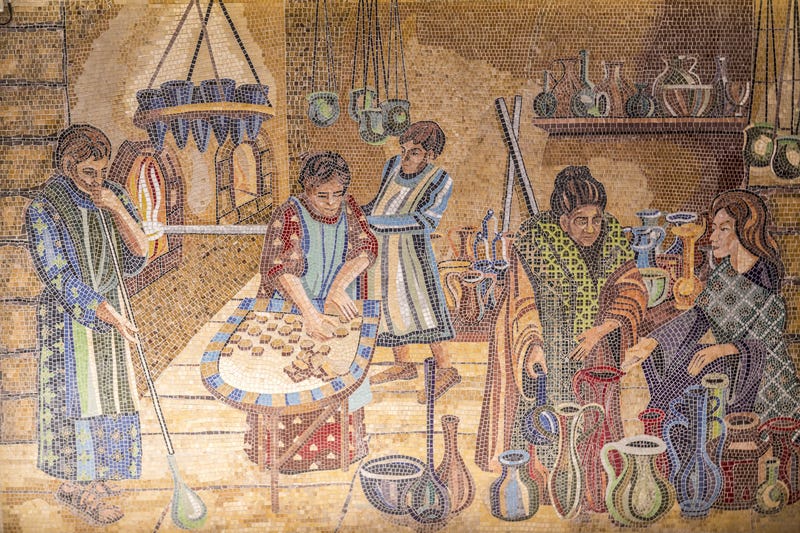As most of you realize, a group of us are aiming to manifest a tremendous vision for the future of life on Earth. Part of this plan is develop a modern form of the ancient guild system, one that we could say begins with an application. If accepted, the newly admitted member begins as an apprentice. He or she learns the basics of the craft and upon reaching a major milestone goes from apprentice to journeyman. Some become masters and the teachers and initiators of others. In theory, we could argue that guilds were an ancient form of vocational training, something that is rarely handled very well in our modern society which, alas, is often based on the assembly line idea in which one’s expertise is limited to a very small part of the entire production process.
It has sometimes been argued that, in times past, we inherited not just the genes from our ancestors but their talents as well. In a way, this makes a lot of sense and appeals to the love of tradition that all of us share to some extent. In some disciplines, such as alchemy and shamanism, the transfer of knowledge was very strictly regulated; and there were many rungs of the ladder to climb before reaching the pinnacle of being able to apply what has been taught in a practical manner. There are numerous medical traditions that are protected within families in nearly the same manner as a ruler protects his throne. Similarly, there is esoteric wisdom that is only imparted after the aspirant has conquered himself and proved worthy of the blessing of higher understanding.
We could suggest that the concept of admission, training, supervision, scaling the ladder, and graduating is not unique to manual disciplines since very similar structures can also be seen in monastic training where one might begin as a novice and very gradually become qualified for more and more training.
As a child, I balked at the educational system. I really thought it was awful. As you know, my Moon is in Sagittarius in the ninth house so you could say I have an instinctual understanding of who is qualified to teach and, sorry to say, a habit of being very quick to ignore those who purport to be experts when clearly they are not.
In Hawaii, where I lived for 20 years, the kahuna tradition actually works very much like a guild. It is deeply tied to tradition, but in saying this, I know of very few who would argue that tradition stands in the way of progress. A strong tradition can assimilate information and utilize technology from the modern world, but there is still an emphasis on mentoring by a senior individual who has mastered the curriculum.
Put another way, when we are young, at least in the U.S., we generally have one teacher for all subjects when in elementary school. Later, we usually have a different teacher every semester or every year. This person can hardly be seen as a master, at least not in my experience. Later, we have specific classes, each taught by a different person, again often someone with limited experience.
Think for a moment about musical education. Would you rather learn from an accomplished composer and performer or from a book about notes and harmonies and rhythms? A very gifted child would crave tutoring by someone he or she admires and perhaps wants to emulate.
Guilds can and perhaps should be very flexible. Some are built around specific crafts. I lived in Ecuador for a short time. Each village tended to have experts in certain areas. For instance, Otavalo is famous for arts and crafts, Ibarra for working with wood, everything from furniture to statues, Cotacachi for anything made of leather: belts, boots, apparel, toys. Some places produced coffee or cacao, and one village was famous for shamanism.
As the gringos came in droves, new enterprises arose, like essential oil distillation, and various activities that appeal to tourists such as trips to the Galapagos Islands or Amazon forests. Each new activity requires trained staff. Before this is possible, people are often brought over to teach hotel and restaurant management or locals go abroad and hopefully return with skills they are eager to share.
A guild can be built around any activity. For instance, in the craft area, there are two projects very dear to my heart. One is the use of biodegradable water boxes made of agave to reverse desertification. Another is medicated chewing gum. Both of these require some understanding of tradition, such as which plants will grow where and what they need as companion plants and protection from foragers and harsh weather. For the chewing gum, we need trees and a knowledge of how to harvest the latex and what herbs to use for each disease. So, there must be training, by masters. These are, for me, ideas, but if I am a master of anything, it is definitely not in manufacturing boxes made of agave leaves . . . and I have never climbed a tree to harvest any exudate from a tree . . . moreover, at my age, I am not aspiring to add this to my curriculum vitae, but the Academy will engage the services of the masters so that people can apprentice.
I have studied many subjects in my life so if I were to say what is entirely original with me, not copied or taught to me by others, it would be darkfield microscopy and music therapy. Obviously, my system of medical astrology is also unique, but it is built on a traditions, several different traditions, some that go back thousands of years. Only my way of putting the pieces together and explaining the system is unique, but I think this makes me a master in this field as well.
It therefore goes without saying that there is a sort of point of convergence where traditional and modern meet. I cannot, for instance, imagine a Kogi elder sending his son to a modern university for an education. I can imagine begging a Kogi elder to share his wisdom in our Academy so it spreads throughout the world. If we want sustainable agriculture, nutrient dense food, phytomedicines with real vitality, we must make sure the knowledge spreads far and wide.
No matter what the skill is that one hopes to master, it will take training and practice. Yes, we can watch videos on how to make your own bread, but are you then a baker? Can you also make scones? pastries? pasta? When are you a real master of the kitchen? Do you know which foods are good for which people? How much to serve? Where to source the ingredients? How to grow what you need for your production? This is the difference between a short order cook and someone who has studied in a guild. Obviously some professions may be easier to master and take less training, but it is one thing to change a tire and another to rebuild a motor. Similarly, anyone can make an ointment in the kitchen, but can that person take a medical history and run a clinic?
Personally, I feel guilds are potentially more interesting than schools because one is generally, hopefully, in a guild that is focused on something one loves, not on how to scan barcodes day in and day out. Wait for the announcements in 2024! Meanwhile, enjoy the holidays and time together with those you love.
Copyright by Dr. Ingrid Naiman 2023 || All Rights Reserved
For permission to quote, please contact the author. Sharing via e-mail and posting links are welcome so long as the author and source are properly cited.
Image Credit:
Agave: Jcfotografo | Dreamstime.com
Latex from Sapodilla Tree: debate.com.mx
Mosaic of Ancient Bakery in Jerusalem: Engin Korkmaz | Dreamstime.com







I love how you explain the guild concept - and the images!
I have been trying to formulate the concept of the guild for years while caring for my autistic nephew, Adam, who passed away in 2014. I could not believe the burden of autism on the economy and thought that a guild-like approach resulting in a sustainable household could provide a solution to families like ours.
Since Adam’s passing, the problem with ASD (Autism Spectrum Disorder) and its burden on the economy has exponentially increased. Today I saw an alarming article in the University of California journal titled “Autism's costs estimated to be $500 billion, potentially $1 trillion, by 2025” (https://www.universityofcalifornia.edu/news/autisms-costs-estimated-be-500-billion-potentially-1-trillion-2025).
What do we do to solve the problem?
One gutsy dad did - he created a car wash thriving business, “Rising Tide” around his autistic son in which the whole family got involved and his son loves what he does! https://www.risingtidecarwash.com/learn-to-lead-program
The story was featured on CBS: National “Hiring people with autism: how one car wash turned it into a winning formula”. (https://www.youtube.com/watch?v=QixutorIyb8)
Today Rising Tide car wash has 43 employees, with 35 of them on the autism spectrum.
That is a guild-like approach! Very much looking forward to the 2024 announcements!
Author: Max Freedom Long, “Growing Into The Light,” “The Sacred Science Behind Miracles,” & “The Sacred Science at Work.” The ancient “Huna” system.